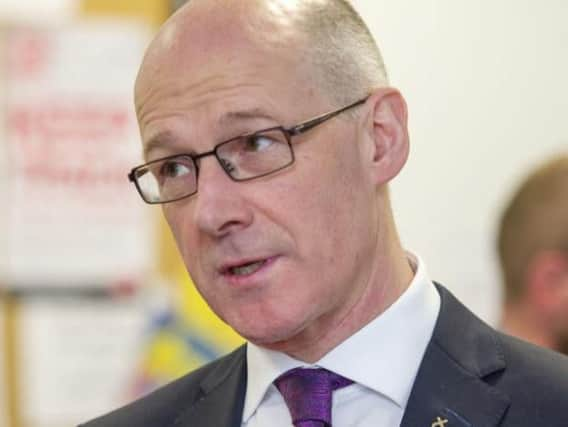Revived '˜Named Person' plans still won't work, warn legal chiefs


The latest proposals will still place an unfair burden on teachers tasked with sharing sensitive information about their pupils and threatens to undermine trust with families, according to the Faculty of Advocates.
These are broadly similar to the criticisms of the original Bill which was defeated at the UK Supreme Court in just over a year ago and opponents yesterday stepped up calls for the legislation to be scrapped.
Advertisement
Hide AdAdvertisement
Hide AdEducation Secretary John Swinney immediately pledged to bring back the plans which will see would see a single point of contact, such as a teacher or health visitor, appointed to look out for the welfare of all children. The revised legislation in the Children and Young People (Information Sharing) (Scotland) Bill.
Judges had ruled last year that elements of the policy were ''incompatible'' with the right to privacy and family life as set out in the European Convention on Human Rights (ECHR). Two key issues centred a "serious" lack of clarity for those implementing it and a lack of safeguards for those affected.
The Faculty of Advocates has now warned in a submission to Holyrood's education committee that modified plans won't work.
"Neither of these issues is easy to resolve and some of the criticisms of the Supreme Court will continue to apply if the Bill as drafted is passed and the accompanying code of practice is approved," the submission states.
The faculty said "clear and accessible" rules are needed for teachers, health visitors and social workers who would be required to assess whether sharing information is proportionate.
"We remain concerned that this is an exceptionally difficult requirement to impose on professionals in respect of every child in Scotland," the faculty said.
"Its imposition risks making their job considerably more difficult and undermining the trust of families and the willingness to share information with the professionals concerned."
a code of practice accompanying the legislation should be phrased in more accessible language and professionals should have access to an advice service or helpline.
Advertisement
Hide AdAdvertisement
Hide AdTory education spokeswoman Liz Smith said Mr Swinney should now drop the proposals.
“The Scottish Government should finally do the honourable thing and abandon this unwanted and expensive policy,” she said.
She added that the ministers have created further confusion by telling parents they are no longer obliged to accept the advice of a named person, while telling councisl they are "obliged in statute to provide a named person for every child."
A spokesman for the No to named Person Campaign which led the fights against the original proposals branded the plans a "detested Big Brother Scheme."
He added: “The Faculty is clear that the planned changes don’t go far enough to meet the Supreme Court’s concerns.
“Rather than trying to save face by making the bare minimum of changes it thinks it can get away with, the Scottish Government needs to accept how badly it got this wrong.
“It would be better off scrapping the scheme altogether.”
A Scottish Government spokeswoman said the final form of the Bil will take into account any comments made by MSPs in their scrutiny.
“We are confident that the Children and Young People (Information Sharing) (Scotland) Bill fully addresses the issues raised by the UK Supreme Court," she added.
Advertisement
Hide AdAdvertisement
Hide Ad“It will bring consistency, clarity and coherence to the sharing of information about children’s and young people’s wellbeing across Scotland. The Bill will be subject to scrutiny and approval by the Scottish Parliament and we will continue to listen to views of stakeholders and the Parliament through this process.”
